Below are brief news bits from last week’s Metro committee meetings in advance of this week’s Metro Board of Directors Meeting,
Open Streets Grants
On Wednesday, the Metro Planning and Programming Committee voted to approve $5 million in Open Streets grants [staff report].
ActiveSGV, which produces 626 Golden Streets events including the hugely popular 2023 Arroyo Fest, urged Metro to allocate more money to the program. Among many concerns, ActiveSGV notes that, even just taking inflation into account, Metro is effectively shrinking this popular program.
Between the new $5 million (and reprogramming a half-million in unspent funding), for calendar years 2024-2025 Metro would fully fund just four future open streets, and partially (80 percent) fund 12 events (all tried and true: CicLAvias, Golden Streets, and Beach Streets). This would leave non-profits and cities to scramble to bridge a shortfall for events starting less than three months from now.
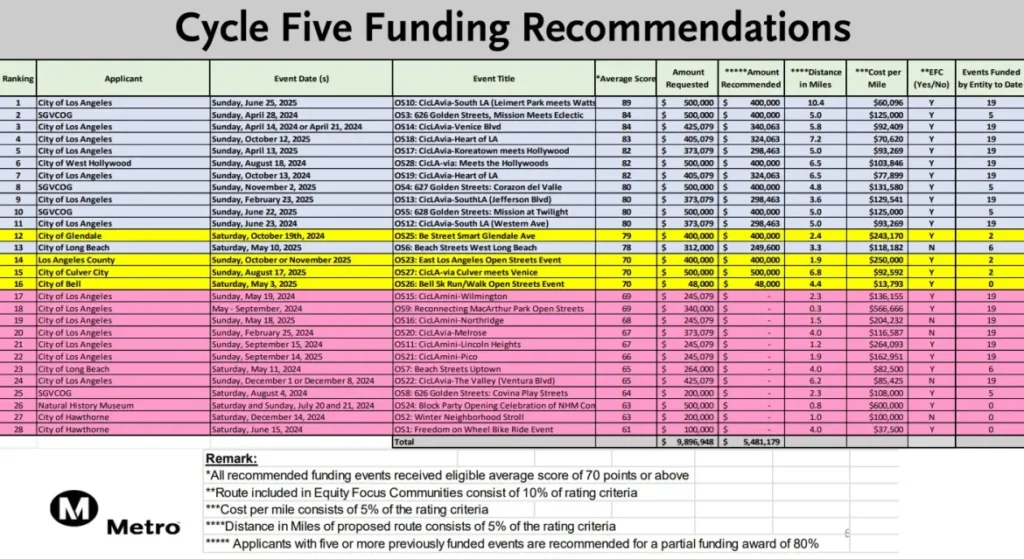
A two-year $5 million open streets cycle costs Metro less than one-sixth of the $33 million Metro recently approved for widening one freeway offramp or the $31 million Metro allocated for a year of ~2,000 trips/day on Metro Micro (see below). Metro is urging event producers to try to get cities and other funders to step up
The open streets grants item goes the full board next week. Hopefully the board can find a few million dollars (look under couch cushions, maybe) to ensure L.A. County open streets continue to thrive.
Metro Micro Pilot
Metro is proposing that its MicroTransit pilot start charging the board-approved $2.50 fare, an increase from the current $1 fare that had been approved as a six month promotion but lasted three years. (Streetsblog has been highly critical of the unfairness in Metro charging a $1 fare for a premium MicroTransit serving a whiter more suburban constituency, while charging everyday bus and rail riders $1.75.)
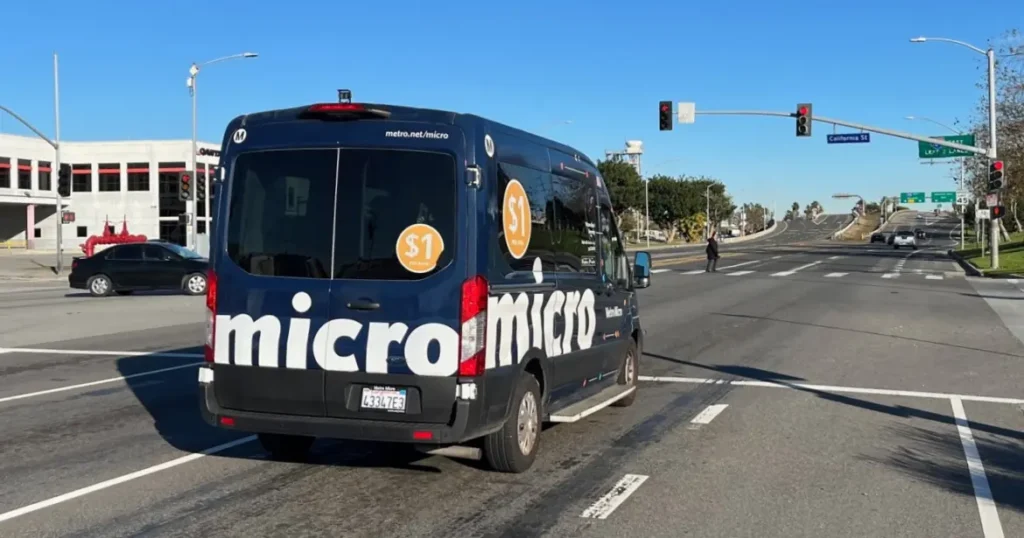
Metro received public input, which was supportive of increasing the fare. The proposal [staff report] was approved by the Operations Committee yesterday. If approved by the full board next week, the $2.50 Metro Micro fare is expected to be in effect by the end of March.
Metro Bike Share
Bicycle and labor advocates were loudly critical of Metro’s proposal to contract with Lyft to operate Metro Bike Share [staff report].
At yesterday’s Operations Committee meeting, County Supervisor Katherine Barger announced that she had received more than 70 public comments on the bike-share proposal, and requested that the committee continue (essentially postpone) the item. The committee approved Barger’s motion, and is now expected to vote on bike-share at its next meeting on February 15.
Look for more SBLA Metro Bike Share coverage coming soon.
MacArthur Park Station Security Interventions to Spread
Starting in early 2023, at its MacArthur Park Station, Metro has been piloting interventions intended to “increase public safety.” The pilot includes mostly punitive measures (including headache-inducing loud music, increased law enforcement, portal and plaza area closures, uncomfortably bright lighting, cattle-chute-like barriers, and fare gate hardening) plus some positive measures (including transit ambassadors, outreach to unhoused folks, increased cleaning, and a bathroom).
Last September Metro also upped B and D Line subway service restoring more frequent service there.
Like the rest of the Metro system (see below), MacArthur Park Station is seeing more riders and less crime. So now Metro wants to take this show on the road – doing similar interventions at other stations.
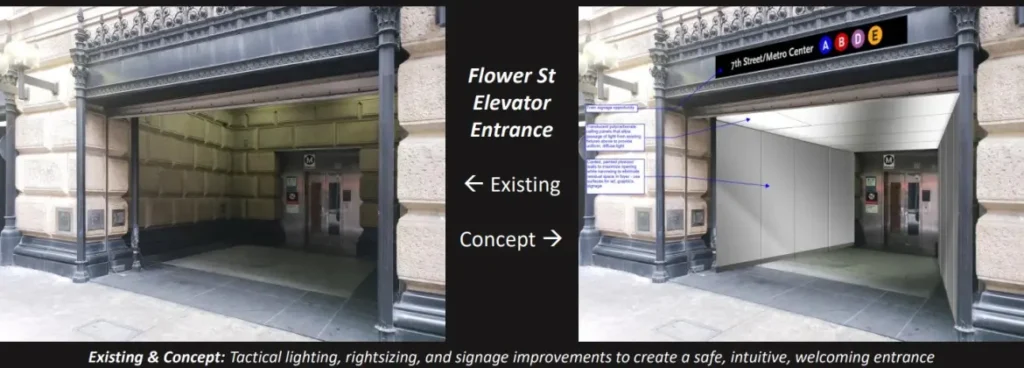
As critical as Streetsblog and others have been of the MacArthur Park Station interventions, this isn’t all bad. The angel or devil will be in the details. Will this lean toward station activation? Or widespread torture music? Probably something between those extremes.
Though there’s no schedule announced, Metro’s staff report shows the next four stations where Metro staff are looking to pilot interventions: Lake Avenue, Hollywood/Highland, Downtown Santa Monica, and Norwalk.
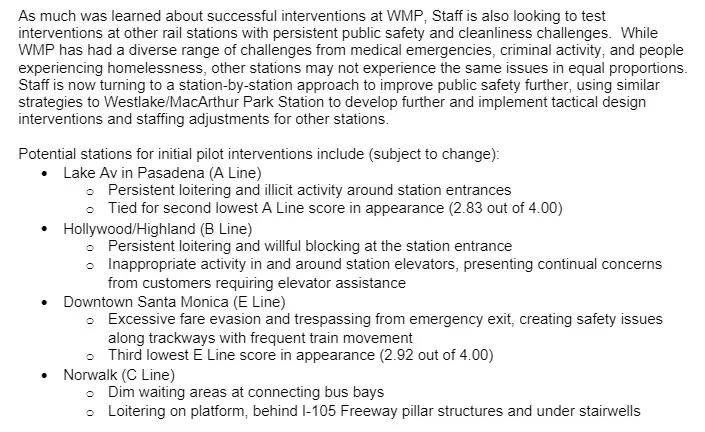
Keep your ears open for changes at stations you use.
Transit Ridership Up, Crime Down
Metro has seen steady transit ridership growth for just over a full year – as measured comparing the current month to the prior year.
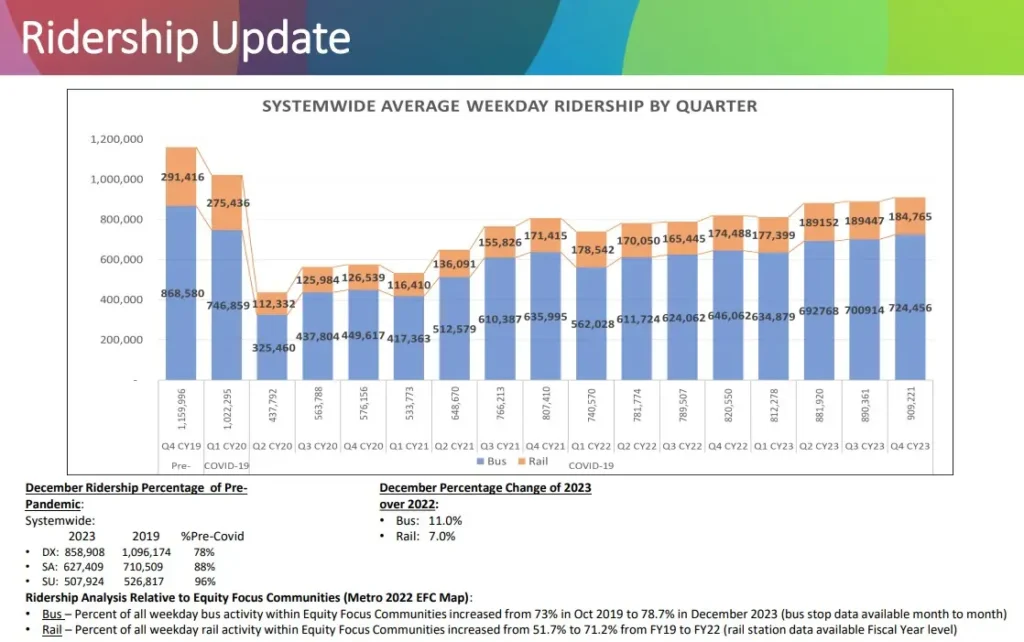
Transit trips do take a seasonal dip. Metro’s December and November daily weekday ridership (858,908 and 907,343 respectively), though higher than 2022, was below Metro’s COVID-era high in October (956,754).
Metro Chief Operations Officer Conan Cheung reported that Metro light rail saw a spike in ridership over New Year’s, which he credited to popular events and a December service increase.
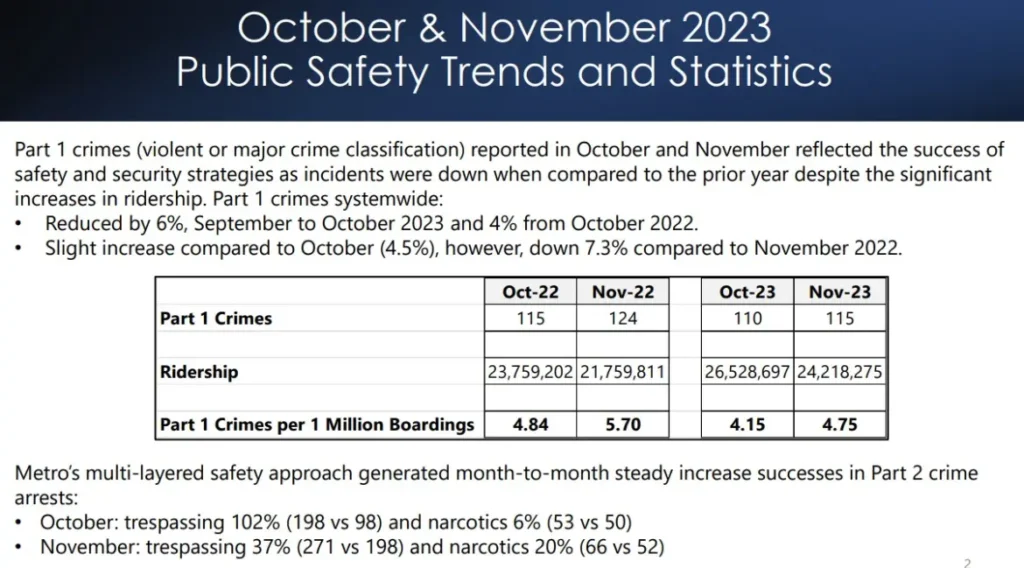
Metro continues to be safe. While crime statistics are fairly volatile (and count law enforcement citations as opposed to overall crime), Metro’s monthly public safety report showed that as ridership rose, citations declined.
